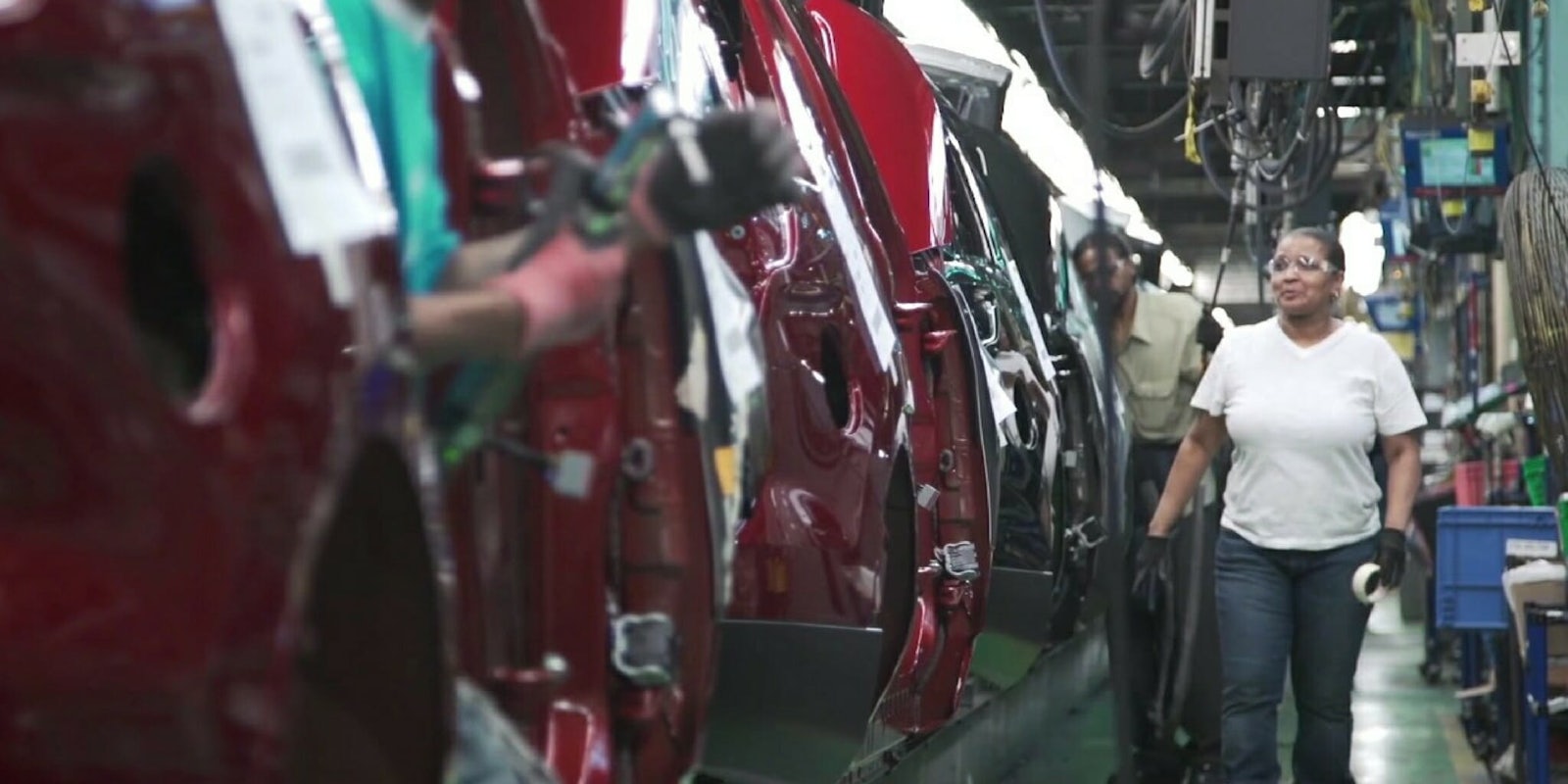Jim Hackett, Ford Motor Co. president and chief executive, published an open letter Thursday apologizing to Chicago factory workers after more than 70 current and former employees spoke to the New York Times about decades of sexual harassment and retaliation.
According to the Time‘s piece, published Dec. 19, workers at Ford’s Chicago Assembly and Chicago Stamping factories experienced more than 25 years of sexual and racial harassment with retaliation for resisting advances and few consequences for male harassers.
The story detailed Ford’s shortfall and resistance to change company culture between 1999’s $22 million settlement reached by the Equal Employment Opportunity Commission (EEOC), the federal group that investigates claims of sexual harassment, and the EEOC investigation that led to a $10 million settlement this August.
From the 1970s through 2017, female factory workers say they suffered harassment and felt victimized by coworkers’ propositions, insults, sexual assaults, and punishments for refusal. They said union officials harassed them and discouraged them from filing complaints against coworkers.
In his letter apologizing to workers, Hackett wrote it was “gut wrenching” to read the accounts of Ford employees and committed to having zero tolerance for sexual harassment within the company or retaliation for women who come forward.
“I am sorry for any instance where a colleague was subjected to harassment or discriminatory conduct,” Hackett wrote. “On behalf of myself and the employees of Ford Motor Company, who condemn such behavior and regret any harassment as much as I do, I apologize. More importantly, I promise that we will learn from this and we will do better.”
The letter continued with an outline of measures Ford has taken to prevent another systemic oversight of harassment in the future, including adding 20,000 more hours of employee training, increasing staffing for better supervision, and quicker responses to harassment allegations.
Suzette Wright, one of the women profiled in the Times piece, reportedly cried when she was told Hackett had written the letter of apology she had been waiting for since she joined a lawsuit against the company in the 1990s and had it settled in 2000.
Gwajuana Gray, another worker, told the Times she remains skeptical of Hackett’s apology. Since the original piece ran on Tuesday, she says a supervisor has retaliated against her by under-recording her hours worked and docking her pay.
“It has to be a different environment, a different culture,” Gray said. “I hate for people to be fired, but if they won’t change, or they think they are untouchable, they have to be fired.”
In the #MeToo era of industries finally forced to take sexual harassment and assault seriously, the experiences of Ford’s female factory workers finally launched “blue collar” workers into a conversation that has been mostly dominated by Hollywood heroes and media personalities.
Ford’s story acts as a cautionary tale for other industries and activists hoping that this months-long upheaval of powerful predators is the beginning of the end of tolerance for abuses of power.


